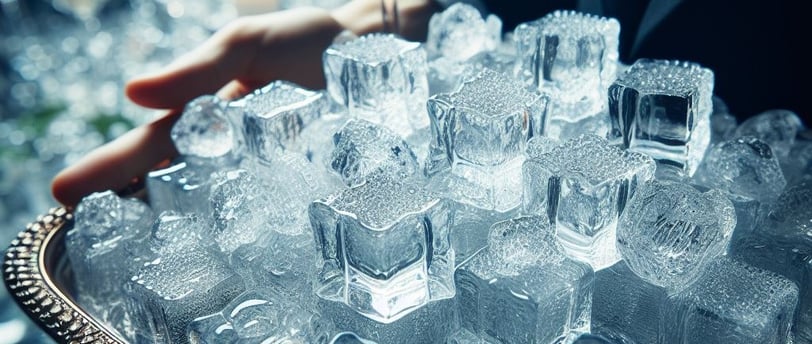Ice Ice Baby: Keeping It Cool and Clean
How to handle ice safely.
Omar Rebaza
2/6/20242 min read


Ice: it's the lifeblood of a refreshing drink, a key ingredient in culinary creations, and even a handy first-aid tool. But how often do we stop to think about how we handle this ubiquitous frozen water? Improper hygiene when dealing with ice can lead to unwanted chills of a different kind: foodborne illnesses and contamination. So, let's dive into the world of ice and explore some cool and clean ways to handle it:
From Source to Storage:
Choose wisely: Opt for filtered water when making ice to minimize impurities. Skip the cloudy ice at the gas station!
Clean containers: Use sanitized ice trays, coolers, and storage bins specifically for ice. Avoid repurposing containers that held food or chemicals.
Label and rotate: Label trays or bags with the date to ensure you always use the oldest ice first, preventing freezer burn and potential bacterial growth.
Scooping and Serving:
Hands off! Never touch ice with bare hands. Use clean utensils like scoops or tongs, and store them in a designated, sanitized container.
Scooping etiquette: Avoid "double dipping" the scoop back into the ice bin. This reintroduces bacteria and contaminates the remaining ice.
Ice for consumption: If ice is directly going into drinks, use dedicated "consumption" ice that's kept separate from ice used for chilling coolers or other purposes.
Melting Matters:
Drain it: Don't let melted ice sit in coolers or containers. This creates a breeding ground for bacteria and dilutes your drinks. Empty and clean regularly.
Reusing melted ice: Refreezing melted ice is generally not recommended, as it can concentrate contaminants and lose clarity. However, if you must, refreeze immediately in clean containers and only use it for non-consumption purposes.
Bonus Tips:
Ice makers: Regularly clean and sanitize your ice maker according to the manufacturer's instructions.
Travel chillers: Opt for reusable ice packs instead of loose ice for traveling, as they are easier to keep clean and prevent spills.
Commercial ice: When buying commercial ice, check its certification and source to ensure it meets safety standards.
Remember, a little awareness goes a long way in keeping your ice cool, clean, and safe. By following these tips, you can ensure your next chilled beverage or culinary creation is truly refreshing and free of unwanted surprises. So, let's keep it cool and clean, one ice cube at a time!
